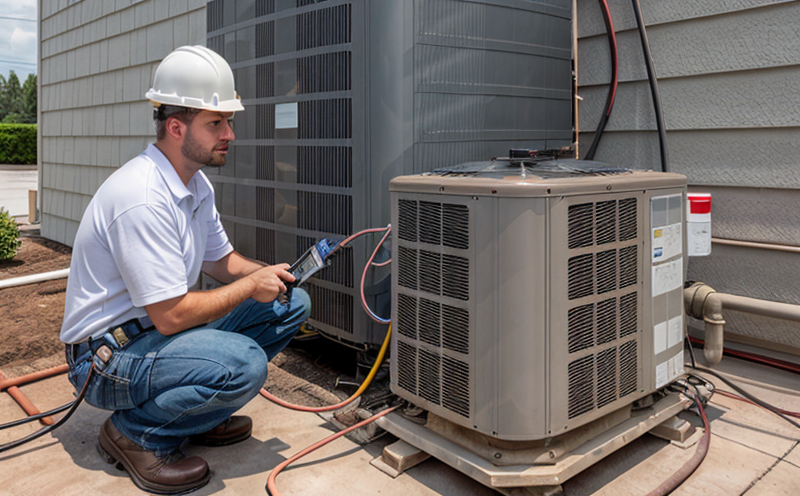HVAC control system inspection
Heating, ventilation, and air conditioning (HVAC) systems are essential components of modern buildings. They ensure a comfortable indoor environment while maintaining energy efficiency. The control systems within these HVAC units play a critical role in managing the operation of fans, compressors, dampers, and other mechanical devices. An effective inspection of these controls is crucial to ensure optimal performance, compliance with safety regulations, and longevity of the system.
The purpose of our HVAC control system inspection service is to evaluate the functional integrity and reliability of the control systems within HVAC units. This involves assessing the electronic components, sensors, actuators, and software that manage the operation of these systems. Our experts use advanced diagnostic tools and industry-standard methods to ensure thorough testing.
During an inspection, we follow a rigorous process that includes visual inspection, functional testing, and performance analysis. Visual checks are conducted to identify any visible damage or signs of wear and tear. Functional tests involve simulating real-world conditions to assess the system’s response to various stimuli. Performance analysis helps us understand how well the control system operates under different environmental conditions.
Our inspections not only ensure compliance with local and international standards but also provide insights into potential areas for improvement. By identifying issues early, we can recommend corrective actions that enhance both efficiency and safety. This proactive approach helps building owners and facility managers make informed decisions about their HVAC systems.
The importance of regular HVAC control system inspections cannot be overstated. Poorly maintained controls can lead to increased energy consumption, reduced comfort levels, and potential health hazards. By partnering with us, you gain access to expertise that ensures your HVAC systems operate at peak performance, contributing to a healthier indoor environment for occupants.
Scope and Methodology
| Aspect | Description |
|---|---|
| Data Collection | Initial data on the system’s configuration, history, and previous inspections is collected. |
| Visual Inspection | The control panel, wiring, and all electronic components are visually inspected for any signs of damage or wear. |
| Functional Testing | The system is tested under various conditions to evaluate its response to different stimuli. |
| Performance Analysis | Data collected during tests is analyzed to assess the system’s efficiency and reliability. |
| Documentation | All findings are documented comprehensively, providing a detailed report for the client. |
Eurolab Advantages
Our team of experienced professionals ensures that every inspection meets or exceeds industry standards. With state-of-the-art equipment and a deep understanding of HVAC systems, we offer unparalleled expertise in this field.
- Comprehensive Coverage: We cover all aspects of the control system including electronic components, sensors, actuators, and software.
- Industry Expertise: Our team includes professionals with extensive experience in HVAC systems and their controls.
- Innovation: We stay updated on the latest technologies and methodologies to provide cutting-edge services.
Quality and Reliability Assurance
To ensure that our inspections are reliable and accurate, we have implemented several quality assurance measures. These include:
- Standard Compliance: All tests conducted adhere to international standards such as ISO 9001:2015 for quality management systems.
- Data Accuracy: Our advanced diagnostic tools ensure precise and accurate data collection and analysis.





